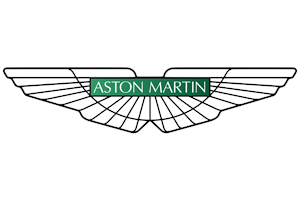


This edition of the Aston-Martin Vantage 4.0 V8 Turbo is the 8 speed / Auto version and was first brought out in 2017. This was at around the same time as the introduction of the 2018 Bugatti Chiron Sport 8.0L W16 Quad Turbo and the 2018 Bugatti Divo 8.0L W16 64 Valve Turbo.This particular Aston-Martin Vantage has a 3982cc Turbo Petrol powerplant with 8 cylinders in a V formation.
The Vantage shares its Petrol V8 engine configuration with the likes of the 2023 Dodge Challenger SRT Demon 170 and the 2023 Ferrari SF 90 XX Spider 4.0 V8 Turbo. If you're looking for other fast cars which share the Vantage's Rear Wheel Drive, Coupe combination then how about the 1982 Fiat X1/9 1.5 8V or the 1965 Aston-Martin DB6 1965.
Weighing in at 1530 kgs (3373 lbs) this makes the Aston-Martin Vantage 4.0 V8 Turbo in the same weight category as the 2022 Porsche 911 Carrera T 3.0 Turbo 992 or the give or take 50kg.
In terms of power the 3982cc 32V V8 engine produces 503 bhp (375 kW) @ 6000 rpm similar to the 2024 Ford Mustang Dark Horse 5.0 V8 (500 bhp) or the 2023 Porsche Boxster Spyder RS 4.0 982 (493 bhp).
The Turbo V8 throws out 505 lb-ft (684.6 Nm) @ 2000 rpm placing it with cars of similar torque performance figures such as the 2023 Lotus Eletre 603 bhp (524 lb-ft) or the 2022 Ferrari Purosangue 6.5 V12 (528 lb-ft).
If one combines the weight with power or torque performance for the Aston-Martin Vantage you can get a better idea of it's real world performance.
![Mercedes SL Class 65 AMG V12 Black Series R230 - [2008] image Mercedes SL Class 65 AMG V12 Black Series R230 - [2008] image](/editionimages/1209.jpg)
The 2008 Mercedes SL Class 65 AMG V12 Black Series R230 (353.4 bhp per ton) has similar Bhp Per Ton stats as the Aston-Martin Vantage.
The Aston-Martin Vantage has a Power to weight ratio of 328.7 bhp per ton and 330.0 lb-ft per ton. Bhp Per Ton figures of the 2017 Vantage competing with the 2008 Mercedes SL Class 65 AMG V12 Black Series R230 (353.4 bhp per ton) or the 2022 Ferrari Purosangue 6.5 V12 (351.6 bhp per ton).
If you agree with the late great Carroll Shelby then arguably an even better indicator of potential performance, Torque. Use weight as well and you end up with - Torque per ton, with the Aston-Martin Vantage generating around 330.0 lb-ft per ton. If you're curious as to what other cars have as much torque to weight then look no further than the 2022 Ferrari 296 GTS Assetto 3.0 V6 Twin Turbo Hybrid (354.5 lb-ft per ton) or the 2022 Ferrari 296 GTS 3.0 V6 Twin Turbo Hybrid (354.5 lb-ft per ton).
With a 0-60mph time of 3.50 secs or a 0-100km/h (0-62mph) of 3.6 secs, this made the Aston-Martin Vantage 4.0 V8 Turbo as fast as the 2023 Chevrolet Camaro ZL1 6.2 V8 Convertible (3.50 secs) the 2023 Aston-Martin Valour 5.2 V12 Twin Turbo (3.50 secs) the 2022 Chevrolet Camaro SS 6.2 V8 Auto (3.50 secs) the or the 2022 Chevrolet Camaro SS 6.2 V8 (3.50 secs). This Aston-Martin Vantage 4.0 V8 Turbo is also faster than the 2023 BMW i7 M70 xDrive G70 (3.60 secs) the 2020 Audi TT RS 2.0 Turbo (3.60 secs) the 2020 Iso Rivolta GTZ 6.2 V8 Supercharged (3.60 secs) the and the 2019 BMW X6 M Competition 4.4 V8 Turbo F85 (3.60 secs).
When talking about the performance of the Aston-Martin Vantage on the drag strip it can reach a quarter mile in an estimated 11.98 secs @ 114.2 mph. Similar performance down the quarter mile can be found with the the 2004 Vauxhall-Opel Monaro 5.7 V8 VXR (11.93 secs), the 2003 Maserati 4200 GT 4.2 V8 (11.94 secs), and the 2020 Lotus Elise Sport 220 1.8 Supercharged (11.95 secs).
Modern performance cars are often artificially restricted to 155mph. The 2017 version of the Aston-Martin Vantage 4.0 V8 Turbo has a maximum speed of 195mph.
If maxing out your car on the AutoBahn is your thing and you're wondering what's faster than the 2017 Aston-Martin Vantage 4.0 V8 Turbo then how about the 2023 McLaren 750S 4.0 V8 Twin Turbo (206 mph), the 2023 McLaren 750S Spider 4.0 V8 Twin Turbo (206 mph), or the 2019 Audi R8 5.2 V10 Decennium (206 mph).









Mercedes 600 W-100
Engine: Naturally Aspirated Petrol | 6332cc 16v V8
Top Speed: 127 mph
0-60mph: 9.20 seconds

Maserati Levante Trofeo 3.8 V8 Twin Turbo
Engine: Twin Turbo Petrol | 3799cc 32v V8
Top Speed: 299.3 kph
0-100kph: 3.9 seconds



















